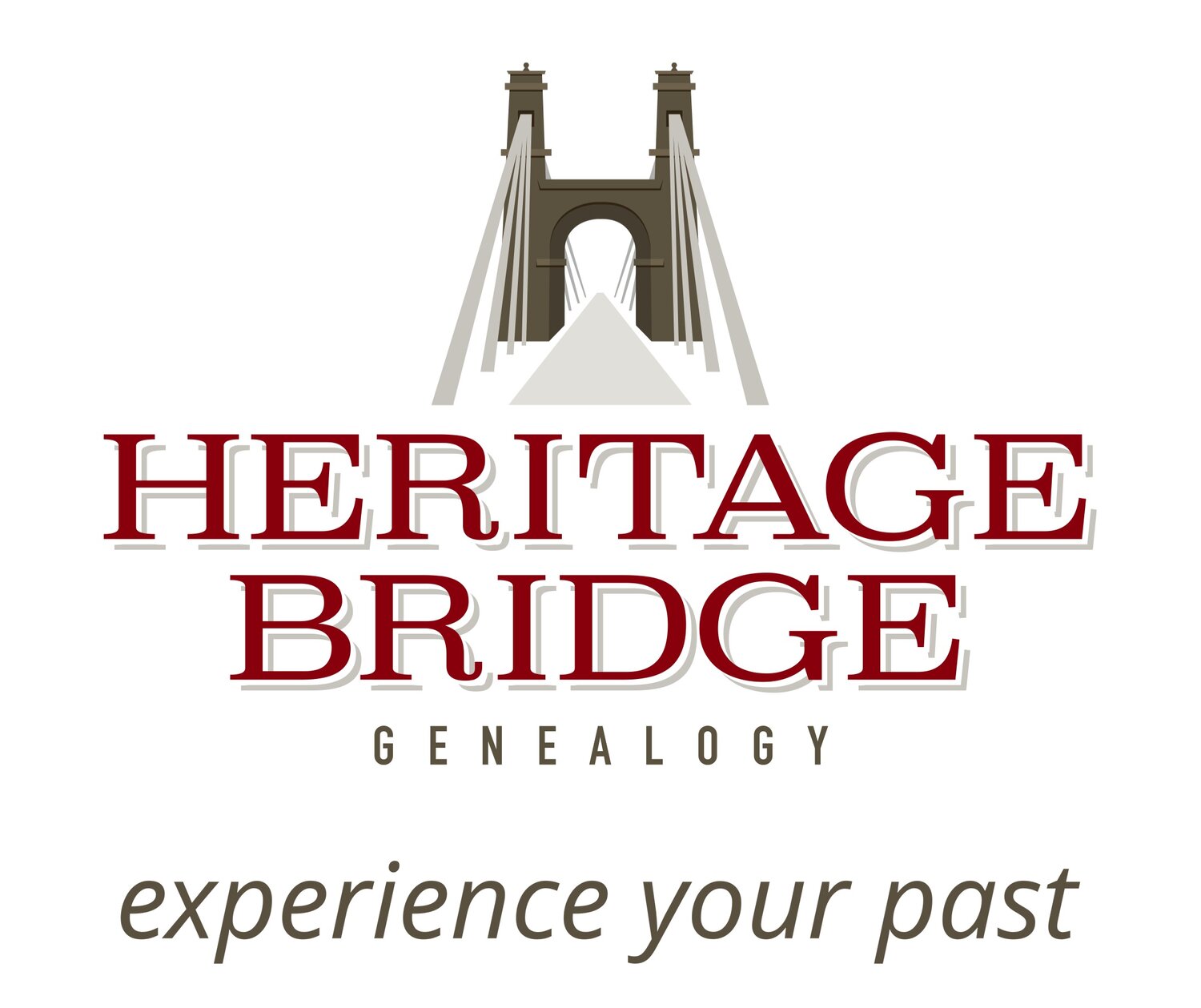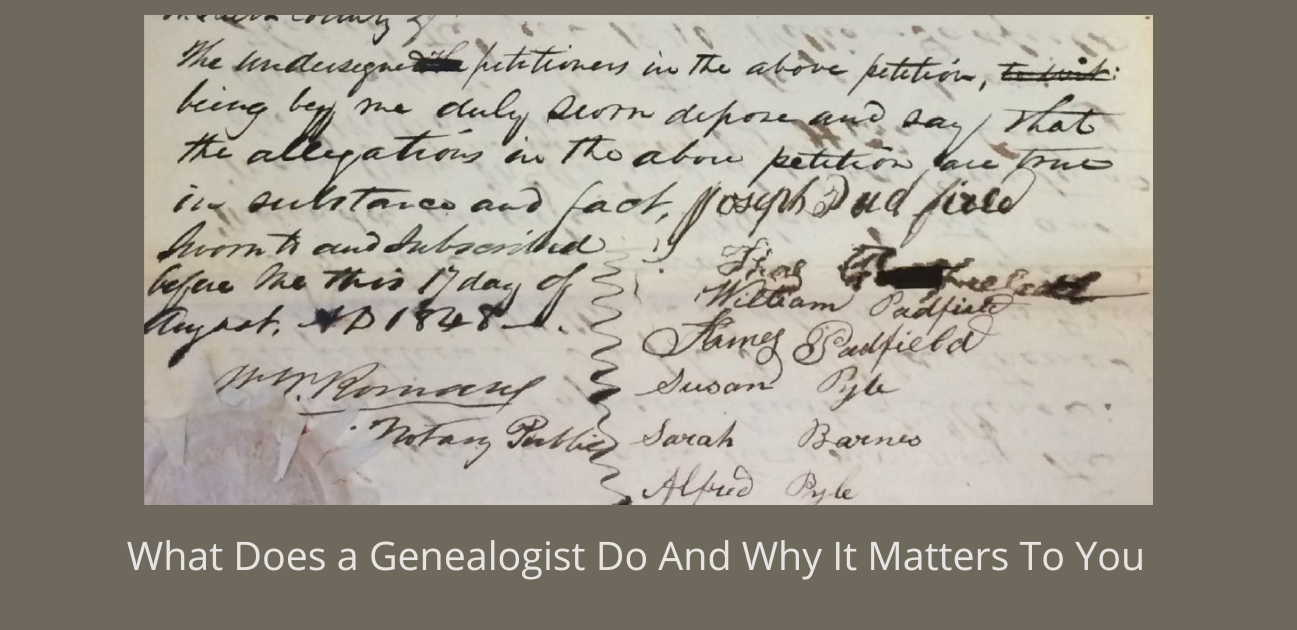Genealogy Uncovered: What Does a Genealogist Do and Why It Matters to You
Want to know if you’re related to a celebrity? Or uncover the cultural heritage that threads through your DNA? Tracing your ancestry is a doorway to not just learning about your familial connections, but also understanding your heritage. It seems it’s easier now than ever to take a quick DNA test and send in a sample or do some research online to discover your family history. Discover the intriguing facets of your family history, often only reachable through the comprehensive work of a professional genealogist. Dive deeper as we explore "What does a genealogist do?" and why their expertise is pivotal in your journey.
What A Professional Genealogist Can Uncover For You
While venturing into family history online is a start, a professional genealogist goes deeper beyond surface-level findings. They dig into and analyze old documents, cross-examine sources, and reveal hidden information from your past. But in a deeper sense, a genealogist studies family history and makes accurate connections between generations. Whether you aim to build a robust family tree or seek more complex services like forensic genealogy, understanding the role of these experts is essential.
There are different specialties among genealogists. For example;
Forensic genealogists research forward in time and find living descendants. Their work typically involves locating missing heirs or beneficiaries, identifying remains of deceased military personnel, or working for law firms on probate, or real estate cases
Record specialists are experts at transcribing and analyzing more challenging records such as estate files, court cases, probate records, etc.
Genetic genealogists use DNA with traditional genealogical methods to solve problems like tracking the parentage of an adoptee
Geographic or language specialists are location-specific to a particular region or country and have fluency in languages native to their specialized location
The highest-level genealogists have earned a credential. Both Accredited Genealogists® and Certified Genealogists® have proved to their peers that they can do excellent work for clients.
To understand what a professional genealogist does more in-depth, it’s worth looking at their process step-by-step. These steps will also explain why their work matters and why genealogists are key to connecting you to your personal history.
Steps in the Genealogical Journey: Why Professional Guidance Matters
RESEARCH PLAN DEVELOPMENT
A meticulous approach is crucial in genealogy. Professionals not only review previous findings but also conduct family interviews. Developing a strategic approach to the research saves you time and cost, and distinguishes a professional from hobbyist family historians. A thought-out research plan will outline which sites, libraries, and archives might have the record types they need and will prioritize using the most likely sources to have the information.
CONNECTING GENERATIONS WITH EXPERT VERIFICATION
The process involves more than just linking individuals based on names or genetic data. It's about authenticating these connections through various records, sometimes requiring the genealogist to visit local sites for research. Their rigorous verification methods prevent common errors that can occur, especially in families where naming conventions repeat across generations. With a large stack of files, records, and microfilm, genealogists use their credentials to sift through the past and accurately connect generations. Accurately connecting generations requires multiple sources of information, ideally created at different points in time.
You might be surprised to learn how often a genealogist can determine that existing information on a family is incorrect—common mistakes include combining two or more individuals with the same name into one or even connecting someone to the wrong parents.
Establishing Identity through In-Depth Analysis
Establishing an ancestor’s identity within your family tree can be a puzzle. From birth records, locations, military service, spouses’ names, and the people they were connected to, identity can be established.
Our ancestors frequently used the same names. For example, a man in the early 1800s named his children Joseph, William, Elizabeth, Mary, and Evan—then when they married, all of those individuals repeated the same names in their own families, leading to many cousins around the same age, with the same names! It takes skill to sort them out.
Conclusive analysis and Reporting
The final report isn’t just a presentation of findings; it’s a narrative crafted with care, corroborated with evidence, and follows the Genealogical Proof Standard (GPS) to lend credibility to the conclusions.
This final step also creates a family heirloom you can share with future generations to preserve the vast history of your personal family tree. When you share what your genealogist discovered, it can connect your family around a united interest that will spark intergenerational storytelling, bonding, and continued memories.
Bridging the Past and Present: Hiring a Genealogist
Now that you have an answer to “What does a genealogist do?”, you have a better understanding of why their work matters. Genealogists prove that everyone’s story deserves to be known, told, and cherished. And who knows, when you discover your family tree, you may learn you are related to a celebrity, after all. How cool would that be? Schedule a free consultation to experience your past!



